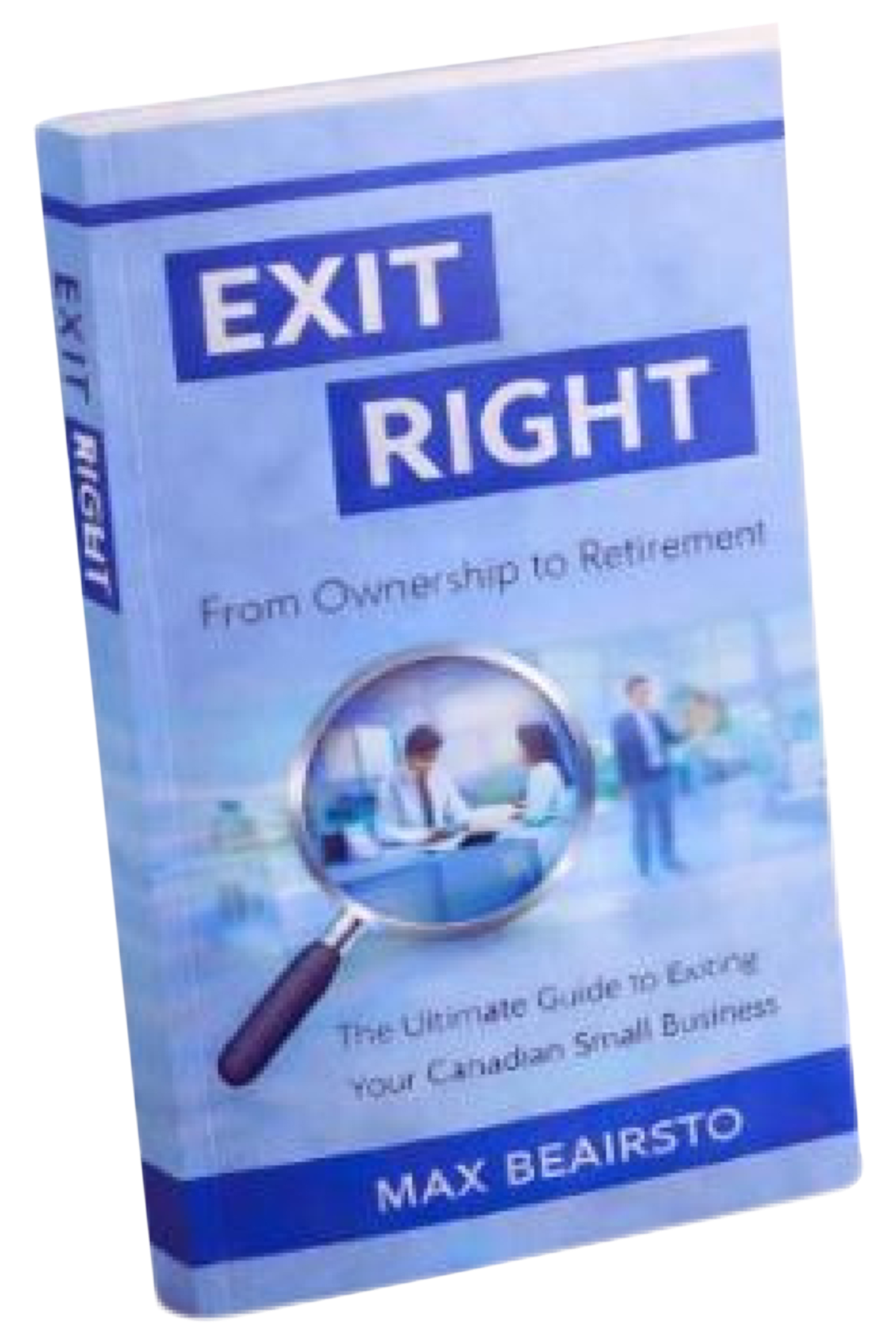August 22, 2025

When the time comes to sell your business, you’ll face one of the most important financial decisions of your entrepreneurial journey. After years of building your company into a successful enterprise, it’s natural to feel emotionally connected to what you’ve created. However, selling a business requires stepping back from emotions and assessing your company with an investor’s mindset.
Before you make a move, ask yourself: Is your business ready to be a great investment opportunity?
The Emotional Connection vs. Investor Perspective
Business owners often have a deep emotional connection to their companies, and rightfully so. After all, you’ve likely spent years—perhaps decades—building your business into a vital part of your community. You’re proud of the important role you play in the marketplace, your independence, and the significant achievement of growing and running a successful enterprise.
Yet when it comes time to put your business up for sale, you need to step back from emotions and look at your company objectively—not as an operator, but as an investor.
Investors approach businesses much differently, and perhaps more analytically, than operators do. For them, the primary goal isn’t to have a place to work or become a community cornerstone. Rather, an investable business is one that has the potential to grow their investment—in other words, to generate a positive return on invested capital.
Why You Should Think Like an Investor
Sellers should adopt an investor mindset for two crucial reasons:
- Buyers are investors, and you want to make your business as attractive to them as possible
- You are also an investor in your business—not just with money, but with the dedication, effort, and years you’ve invested. As an investor, you want to maximize your return on all of that when you sell
The Three Basic Investment Criteria
Investors evaluate certain attributes of a business to determine its potential. Three criteria form the foundation:
- Positive Returns Over Time
Does the investment generate consistent positive returns? Your financial records should demonstrate a track record of profitability and growth potential.
- Manageable Risk
What are the risk factors associated with the business? Investors want to understand and feel comfortable with the level of risk they’re assuming.
- Stable Revenue and Profitability
Is the business’s financial performance consistent and predictable? Investors prefer companies with steady, reliable income streams rather than volatile earnings.
These are basic criteria, and a business that meets them qualifies as a good investment. If you’ve been running your company successfully for several years, it probably qualifies as just that—good. However, if you want to maximize your return, you should aim higher. When you sell, you want your business to be a great investment.
Two Often-Overlooked Attributes of Great Investments
- Liquidity: How Easy Is It to Sell?
The first attribute that many business owners don’t pay enough attention to is liquidity. Will your business be easy to sell? Private businesses typically fall within the range of low liquidity, although there are several concrete steps you can take to maximize profitability and reduce risk, which inherently make your company more saleable.
Improving liquidity isn’t just about being able to sell when you plan to—it’s also about being able to sell when you need to. This scenario is more common than many business owners would care to think about. In the business brokerage industry, it’s widely accepted that half of business sale transactions are unplanned.
The most common reasons can be summarized as the “Five D’s”:
- Death
- Divorce
- Disability
- Disagreement (usually among partners or shareholders)
- Distress (personal issues, financial problems, or burnout)
To maintain your business’s liquidity, you need to prepare for the unexpected:
- Who will be your replacement, at least temporarily, if you’re unable to work?
- Do you have a qualified commercial lawyer to turn to?
- Is your tax mitigation plan for selling ready?
- Have you identified a qualified transaction advisor who can help handle the sale?
- Information Availability: The Power of Good Data
The second often-overlooked attribute is the availability of information. Just as most private businesses are inherently illiquid, they also tend to have low information availability—that’s why they’re called private! Unlike public stock markets, where all participants act on the same information, there’s no shared mechanism for price discovery in private business sales.
However, this doesn’t mean you, as the owner, should lack that information. In fact, one of the biggest hurdles to a successful deal is when the seller is acting on bad data.
The Danger of Bad Data
One common occurrence of bad data is an owner’s unrealistic estimate of their business’s market value. Consider this scenario: You’re planning to retire after your exit and need $1 million from the sale of your business to make that feasible. You think the company is worth $1.2 million—but what if you’re wrong?
If the marketplace values it at only $800,000, you’ll fall $400,000 short of your goal. Your retirement plans might be compromised, and you might not be able to afford to sell your business when you want to.
Making Your Business Information-Rich
To make your business a great investment, pay attention to the quality and availability of information. This means:
- Complete and reliable accounting conducted according to best practices
- Accurate balance sheets with properly documented accounts receivable, accounts payable, and inventory
- Correct income statements that accurately reflect your business’s financial performance
- Professional documentation of all key business processes and procedures
Recent data shows that over 80% of businesses have incorrect financial statements due to improperly documented accounts receivable, accounts payable, or inventory. This means their income statements are fundamentally flawed, making accurate valuation nearly impossible.
Getting Professional Valuation
If you want an accurate number for your business’s value, avoid “rules of thumb” like multiples of earnings or revenue-based calculations, which are almost always incorrect. Instead, seek professional advice from a qualified, credentialed business valuator. This is the best way to know, with reasonable certainty, perhaps the most crucial piece of information in a business sale.
Preparing for Success
A professional valuation serves multiple purposes:
- Provides an accurate baseline for sale negotiations
- Identifies areas where you can improve value before selling
- Helps you set realistic expectations and timelines
- Gives you confidence in your asking price
The investment you make in professional guidance—whether for valuation, legal advice, or transaction support—typically pays dividends in the form of a higher sale price and smoother transaction process.
Taking Action
Transforming your business from a good investment to a great one requires deliberate planning and professional support. Start by:
- Conducting a thorough financial audit to ensure your records are complete and accurate
- Getting a professional business valuation to establish your baseline value
- Identifying and addressing risk factors that might concern potential buyers
- Developing contingency plans for unexpected circumstances
- Building a team of advisors including legal, tax, and transaction professionals
Remember, the goal isn’t just to sell your business—it’s to maximize the return on all the time, effort, and resources you’ve invested over the years. By thinking like an investor, you position yourself to achieve exactly that outcome.
Your business represents more than just a source of income; it’s the culmination of your entrepreneurial vision and hard work. When the time comes to sell, you owe it to yourself to approach the process with the same strategic thinking that made your business successful in the first place.




